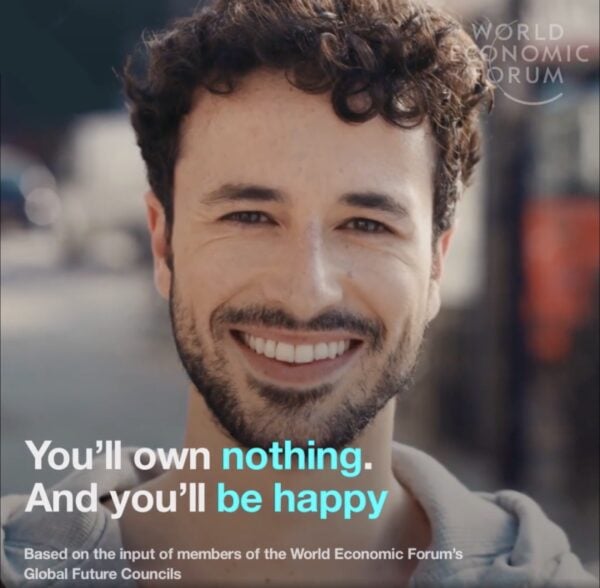
In a push to counter the so-called ‘climate change,’ the globalist World Economic Forum (WEF), under the leadership of its founder and Executive Chairman, Klaus Schwab, has proposed a comprehensive plan aiming to limit 76% of private cars by the year 2050.
The authoritarian objective is a part of WEF’s broader vision for a ‘sustainable and low-carbon future,’ as outlined in its Urban Mobility Scorecard Tool: Benchmarking the Transition to Sustainable Urban Mobility in collaboration with Visa in May 2023.
According to WEF’s recently published white paper, by 2050, people are likely to travel twice as much within cities as they do now. If people don’t change anything, this would mean that there would be 2.1 billion cars, buses, and other vehicles on the road, emitting 4.6 billion tons of carbon dioxide.
The paper suggests if we can get more people using shared transport, like public buses or ride shares, and if we can switch to electric cars and self-driving vehicles, we could bring the number of vehicles down to just 500 million by 2050. This would dramatically reduce our carbon emissions – ‘by 80%.’
The reduction from 2.1 billion vehicles to 0.5 billion vehicles is a decrease of 1.6 billion vehicles. So, the reduction of vehicles from 2.1 billion to 0.5 billion represents a decrease of about 76.19%.

Moreover, WEF stated that switching to electric vehicles isn’t enough to achieve these benefits. People need to combine it with more use of shared transport and changes to how our cities are designed. This means making cities more compact and easier to get around by walking or biking, and prioritizing public and shared transport.
Lifesite News reported:
The WEF recently ran a trial of its Urban Mobility Scorecard Tool and chose Buenos Aires, Argentina, Curitiba, Cota Rica, and Singapore as trial cities.
The white paper by the WEF names containing “the growth of private car use by boosting public transport, cycling, and shared mobility services” as a major “ambition area” for Buenos Aires.
“The capital of Argentina is seeking to enhance sustainable mobility to keep people moving while offering more connected, integrated transport,” the paper states.
The city is also “embracing new solutions to reduce private car dependency and provide a well-integrated, multimodal transport system,” according to the WEF.
Journalist Tim Hinchliffe, editor of The Sociable, pointed out that “[t]he Urban Mobility Scorecard Tool white paper gives further credence to the WEF’s prediction that by 2030 ‘You’ll own nothing. And you’ll be happy.’”
The phrase “You’ll own nothing. And you’ll be happy” is associated with the WEF and its agenda for what it calls the “Great Reset.” The “Great Reset” is a proposal by the WEF to rebuild the economy sustainably following the COVID-19 pandemic.
This phrase originates from a short video the WEF posted in 2016 on Facebook, titled “8 Predictions for the World in 2030.” One of the predictions listed in the video was that by 2030, “You’ll own nothing. And you’ll be happy.”
Meat will be a special treat. Read more: https://t.co/RiQP6tpkfp pic.twitter.com/7BcRHgnWTx
— World Economic Forum (@wef) April 9, 2018
You can read WEF’s Urban Mobility Scorecard Tool below:
